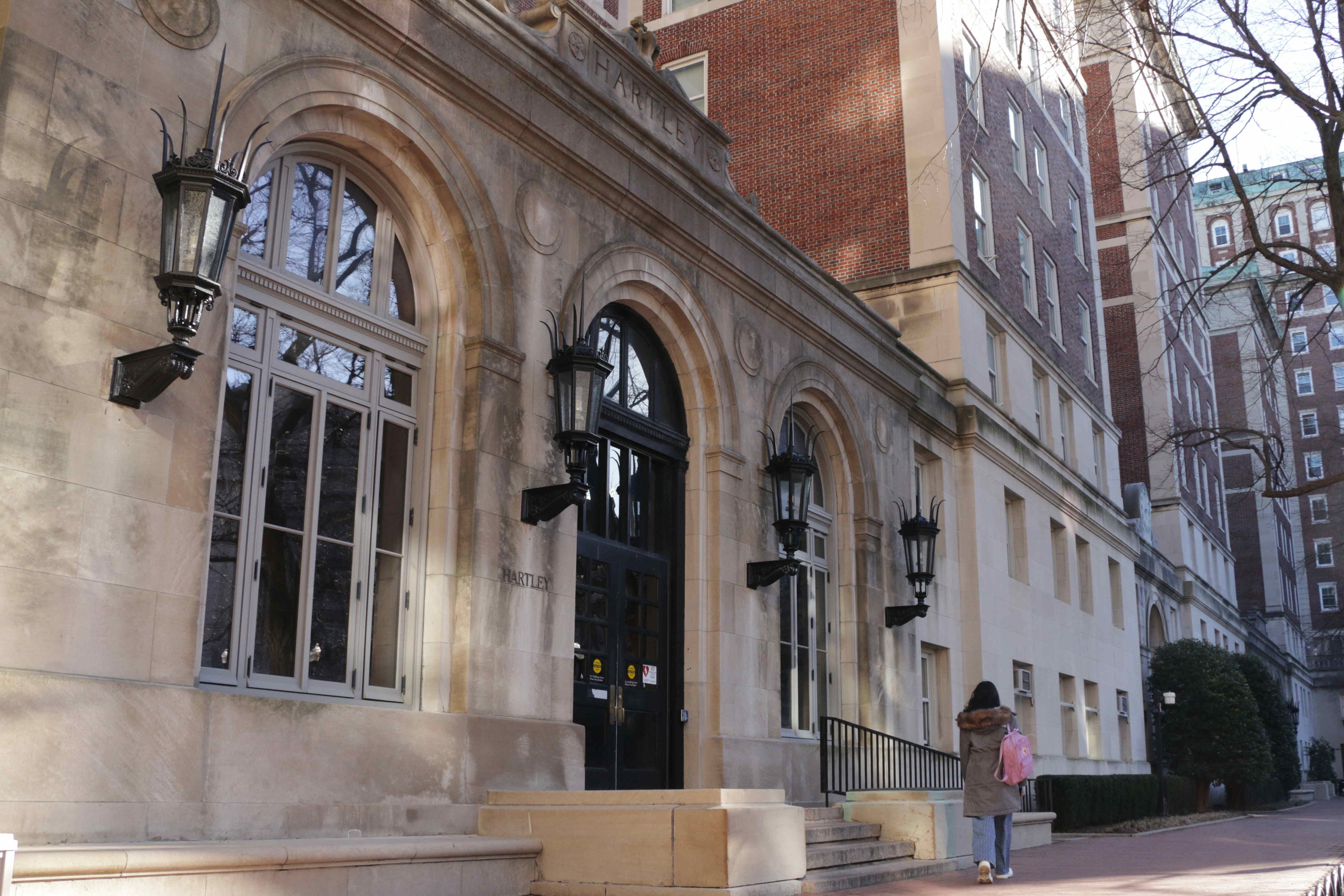News | Student Life
Columbia Residential Life releases changes to resident adviser pay structure prior to first bargaining sessions with RA union
The changes will prevent RAs from holding second on-campus jobs.

By Esmeralda Paredes / Staff PhotographerCURA Collective Bargaining Committee member Hannah Puelle, CC ʼ25, said the email was “really shocking and jarring” to the union.By Sara Kirkham • February 16, 2024 at 4:35 AM
By Sara Kirkham • February 16, 2024 at 4:35 AM
Columbia informed resident advisers of changes to the 2024-25 Student Leader Agreement in a Feb. 8 email, after agreements had been sent to RAs and in advance of the University’s first bargaining sessions with the union.
The changes include the formal designation of RAs as University employees, which results in a transition to a biweekly pay structure from the previous quarterly system, a shift to wages instead of honorariums for compensation, and the inability for RAs to hold second on-campus jobs. The changes follow months of delays in scheduling the first bargaining session between the Columbia University Resident Advisers Collective and administrators.
CURA Collective Bargaining Committee member Hannah Puelle, CC ʼ25, said the email was “really shocking and jarring” to the union.
“We had no communication from ResLife as the union that this was going to happen,” Puelle said.
“We value Columbia’s RAs and recognize them as vital student leaders who play a crucial role in our residential community,” a Residential Life spokesperson wrote in a statement to Spectator. “This change was driven by student feedback, a review of the approaches of our peer institutions, and legal guidance. We look forward to continuing our important work together.”
Residential Life stated in an email accompanying the updated agreement that, “Students who work on campus are limited to 20 hours per week when class is in session over the fall and spring terms. Accordingly, RAs will not be able to hold other jobs on campus during the fall 2024 and spring 2025 terms.”
The limitation in the updated agreement will force RAs who do work more than the specified limit to pick between their campus job or being an RA for the 2024-2025 school year.
A large number of RAs hold second jobs, according to a bargaining survey of Columbia’s 150 RAs sent out by the CURA Collective. Puelle herself works as a research assistant and said that this decision will disproportionately impact first-generation, low-income, and international students.
“There’s definitely RAs who are going to have to quit their jobs,” Puelle said. “It might be their second job. It might be their RA job. The people who ResLife is losing through this change are probably the people who are most able to accurately represent our student body and their needs.”
“Certain managerial decisions, including legally required changes, are not mandatory subjects of bargaining,” Janae Buege-McClain, associate director of Residential Life and the First Year Area, wrote to RAs in an email. “This particular change relates only to the change in payment type to RAs. The value remains the same.”
Buege-McClain also wrote that “due to visa restrictions and University policies, there are no exceptions” in the 2024-2025 school year agreement for international and low-income RAs who have previously been able to hold other campus jobs.
Puelle said that while the changes in the agreement might align with some of CURA’s preferences, the manner in which they were implemented does not reflect the collaborative approach CURA wants.
“This is not the way we’d hoped it would go,” Puelle said. “Columbia is required to sit down and bargain with us about this, so even if the change that was made is what RAs want, it was done under methods that are not what we would have wished for.”
The administration has yet to meet with the union since its formation in spring 2023. The union has tried to schedule a bargaining session with the University since the beginning of the fall semester but continues to face delays and cancellations, according to Puelle.
The union voted for recognition through the National Labor Relations Board on May 2, 2023. CURA won the union election 75-4, with 95 percent of Columbia RAs voting yes to unionize.
Columbia’s Postdoc Union voiced similar complaints in February of last year, when the University delayed negotiations for over two months following a grievance filing. Across Broadway, the Barnard Residential Assistant union ratified their first contract in December after months of bargaining sessions and stalls with the administration.
Senior Staff Writer Sara Kirkham can be contacted at sara.kirkham@columbiaspectator.com. Follow her on X @saraokirkham.
Want to keep up with breaking news? Subscribe to our email newsletter and like Spectator on Facebook.
More In News
Editor's Picks

